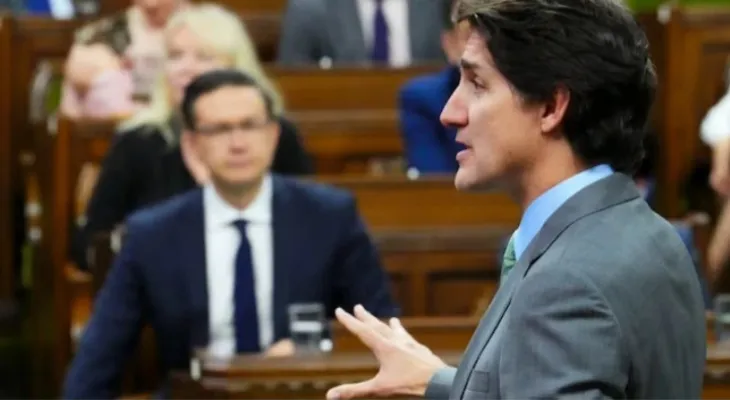Search here
Newspaper
Search here

Arab Canada News
News

Published: January 1, 2024
Prime Minister Justin Trudeau must consider more and more requests for exemptions from carbon pricing, especially from provincial premiers, who announced in October the halt of the carbon tax on heating oil.
Meanwhile, Conservative leader Pierre Poilievre is putting more pressure on the government to completely remove carbon pricing. So far, he has succeeded in convincing many voters that this measure is the main reason for inflation.
In the meantime, he is trying to "slice prices like sausages." For example, Conservative MP Ben Lobb from Huron-Bruce introduced a bill to exempt farmers from paying the carbon tax on natural gas and propane. Mr. Poilievre made this private member's bill a priority.
The Senate adopted Bill C-234 in mid-December. However, since it includes amendments, it must be reviewed again by the House of Commons.
The proposed amendments are limited to the temporary exemption of propane used in grain dryers. If it is supported by the entire opposition – Conservatives, New Democrats, and Bloc – as in the first round, this means a new exemption must be granted.
Other premiers are also demanding exemptions for natural gas, because, like heating oil in the Atlantic provinces, this product is the main source of heating in their provinces.
Saskatchewan Premier Scott Moe has simply promised not to collect taxes for the federal government starting in January.
The new Premier of the Northwest Territories, R.J. Simpson, has called for his entire territory to be exempted, saying that the price of heating oil is so expensive in the North that they would already choose another solution if it existed.
At the moment, Justin Trudeau remains firm in his desire not to open the door to new exemptions.
Michael Bernstein, CEO of the Clean Prosperity group, said he believes Justin Trudeau. He also thinks that the current federal government is unlikely to back down from the program it has established.
The majority of economists say that the carbon tax reduces emissions and believe that pricing is the most effective way to reduce emissions. Many business leaders prefer this system.
From an economic perspective, it is the most effective way to reduce emissions with minimal government intervention, and minimal commitments and rules, emphasized Heather Exner-Pirot, special advisor for economic transformation at the Canadian Business Council.
Comments